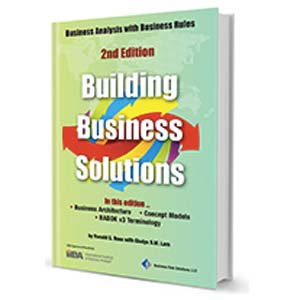The Rules of Happiness
At the start of the year we wish each other a happy new year. But what does that really mean? There are some variants to the saying that I have used in the past and may indicate a relation with happiness:
- a healthy new year
- a peaceful new year
- a connected new year
- a successful new year
- a nice new year
- a meaningful new year
- etc.
Luckily I am (again) in a learning phase of my life. My professor Bill Colins of the Erasmus MBA program organized a class for the partners and relatives of the students. The topic was 'happiness', and it turns out that there are real rules for happiness.
It makes me happy to share some of them with you in this next post of the Rule Observatory.
Dealing with Negative Events (or Negative Feedback)
| 1. A negative event always has more impact and grabs our attention quickly. |
While this rule has been found to be true in research, we are also told that good and bad life events affect happiness for an average of two months. Even losing one's sight or leg does not appear to affect the experienced happiness in the long run. Most people are happy most of the time but do not think, write down, or analyse all the good things that make them happy every day. Our tendency is to stress, analyze, and act based on negative events. So use this tendency to the contrary with the following behavioral rules.
| 2. A negative event must be written down by listing the negative beliefs that trigger the problem, the consequences, your feelings, and resulting actions. |
| 3. A negative belief must be disputed and challenged by thinking of other possible reasons for the problem and considering more optimistic feelings and actions. |
Dealing with Positive Events
| 4. An accomplished goal always makes us happy. |
Research tells us that money does not make us happy, but reaching a pre-set goal and intentional activity does make us happy. Given this finding we can easily increase the moments of happiness. Instead of setting the goal to run a marathon next year, set yourself a goal to run 2 kilometers next week.
Although happiness levels are pretty stable in life it is proven that you can increase happiness by being grateful for the small things in life. Turn this knowledge into practice using the following behavioural rule.
| 5. A gratitude journal must be updated at least 3 times per week with at least 3 mundane or extraordinary things for which you feel grateful. |
In my list today I expressed that I have a new brand of espresso beans that I really liked, and my teenage daughter is in such a good mood with her friend coming over that they made a really nice peanut butter cake and even tried to clean the kitchen afterward!
Take Care of Body and Soul
| 6. If a person sits for a long period of time the person will stop breaking up fat, accumulate fat in the liver, heart, and brain and feel sleepy. |
Physical activity has been proven to beat depression and stress. More and more research demonstrates very positive effects on all aspects in life, including happiness. Add exercise and standing to your daily habits and keep the following rules in mind.
| 7. A lifelong habit is (likely to be) behaviour that you repeat daily for 18 months. |
| 8. One must stand up at least every hour and at least when answering the phone, eating lunch, reading, and talking in a meeting. |
Of course the meaning of the rules is entirely dependent on the meaning of the words I have chosen, but to make you happy I will leave the task to you of figuring out the meaning of those words.
Tip: the meaning of the modal verbs is defined by the SBVR standard :-) but if it makes you happy I will allow you to use your intuitive meaning!
My daughter already started applying rule 5 of a happier life.
That makes me happy!
Allow me to conclude by wishing you a very happy 2018 and offering some references to further reading about the research that support my conclusions.
S. Lyubomirsky, K. M. Sheldon, & D. Schkade, "Pursuing Happiness: The Architecture of Sustainable Change," Review of General Psychology, (2005).
G. Reynolds, The First 20 Minutes: Surprising Science Reveals How We Can Exercise Better, Train Smarter, Live Longer, (2013).
# # #
About our Contributor:
Online Interactive Training Series
In response to a great many requests, Business Rule Solutions now offers at-a-distance learning options. No travel, no backlogs, no hassles. Same great instructors, but with schedules, content and pricing designed to meet the special needs of busy professionals.











How to Define Business Terms in Plain English: A Primer
How to Use DecisionSpeak™ and Question Charts (Q-Charts™)
Decision Tables - A Primer: How to Use TableSpeak™
Tabulation of Lists in RuleSpeak®: A Primer - Using "The Following" Clause
Business Agility Manifesto
Business Rules Manifesto
Business Motivation Model
Decision Vocabulary
[Download]
[Download]
Semantics of Business Vocabulary and Business Rules